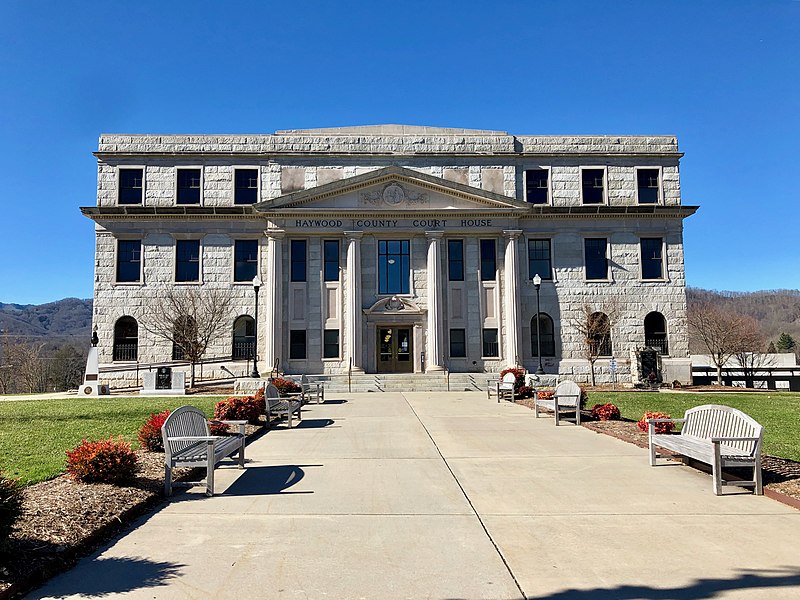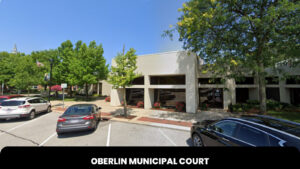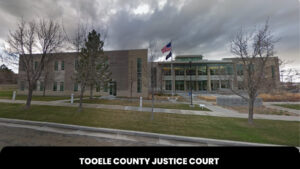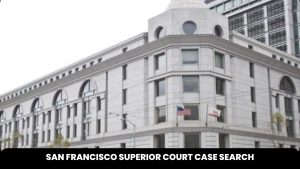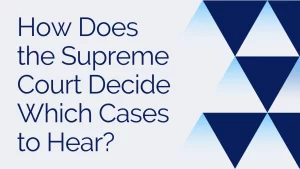Haywood County Superior Court
Time
Working Hours:
Monday
8 am–5 pm
Tuesday
8 am–5 pm
Wednesday
8 am–5 pm
Thursday
8 am–5 pm
Friday
8 am–5 pm
Saturday
Closed
Sunday
Closed
Connect with a Attorney
Overview of Haywood County Court System
Haywood County has a system of courts that handle both criminal and civil matters at the state and local level. The types of cases range from traffic violations and misdemeanors to serious criminal felonies and major civil litigation. There are Superior Courts that handle major civil and criminal cases, District Courts that handle misdemeanors and infractions as well as some civil cases, and Small Claims Courts for lower dollar civil disputes. The dockets for these courts contain schedules of upcoming cases and hearings.
Haywood County Court System
To understand court dockets in Haywood County, you first need to understand the different types of courts and where they are located. Below is an overview of the levels of court and the main courthouse location.
Types of Courts in Haywood County
There are three main types of courts that hold proceedings and have dockets in Haywood County.
North Carolina Superior Courts
The North Carolina Superior Courts are the state’s general jurisdiction trial courts. The Superior Courts have authority over both civil and criminal cases including trials and appeals. These courts handle serious criminal matters like felonies as well as major civil cases with amounts in controversy over $25,000. There are multiple Superior Court judges assigned to judicial districts across North Carolina, including Haywood County.
North Carolina District Courts
The North Carolina District Courts are the state’s limited jurisdiction trial courts. District Courts in Haywood County hear misdemeanor criminal cases, traffic violations, juvenile cases, and civil cases involving $25,000 or less. Appeals from Small Claims Court decisions also go to District Court. There are judges assigned to handle District Court cases in Haywood County.
Small Claims Courts
Haywood County has a Small Claims Court division within its District Court system. The Small Claims Court allows individuals and businesses to resolve relatively small dollar civil disputes in an expedited manner without needing to hire attorneys. The jurisdictional limit is $5,000 for small claims cases in Haywood County. There is a magistrate appointed to preside over Small Claims Court hearings and trials.
Haywood County Courthouse
The Haywood County Courthouse, located at 215 North Main Street in Waynesville, NC, houses Superior and District courtrooms along with court offices.
Location and History
The Haywood County Courthouse has been centrally located in downtown Waynesville since the current building opened in 1932. It sits adjacent to the Haywood County Justice Center which holds the county jail and sheriff’s office. The Neoclassical style courthouse was built with funds from the Public Works Administration during the Great Depression.
Courtrooms and Facilities
The courthouse contains 3 courtrooms, one each for Superior Court, District Court, and Small Claims Court. Court offices like the clerk of court and court administration are located on upper floors. Courthouse facilities also include law libraries and waiting areas. There are security checkpoints at the courthouse entrance.
Haywood County Superior Court Online Court Resources
In today’s digital age, accessing court resources and information has become increasingly convenient. The Haywood County Superior Court, situated in North Carolina, is no exception. This article aims to guide you through the array of online court resources available not only for the Haywood County Superior Court but also for courts across the state of North Carolina. Whether you’re seeking court case records, information on criminal arraignments, or assistance with legal matters, we’ve got you covered.
Search Court Case Records
One of the most common tasks when dealing with the court system is searching for court case records. Whether you’re an attorney, a journalist, or a curious citizen, you can search North Carolina Superior and District Court past and future criminal court appearance dates by citation number or defendant name, county, and court type. This resource provides comprehensive information on arraigned offenses, allowing you to stay informed about ongoing legal proceedings.
Criminal Arraignment Information
Understanding the arraignment process is crucial in criminal cases. With this online resource, you can search North Carolina Superior and District Court criminal appearance dates by citation number or defendant name, court type, and county. It provides valuable insights into arraigned offenses, helping you keep track of criminal proceedings.
Criminal Background Checks
For individuals or businesses requiring criminal background checks, the Haywood County Superior Court offers clear instructions on how to obtain them. The provided links direct you to a search request form, an online fingerprint-based search, companies that provide paid searches, and a business access program. Please note that fees may apply for some services.
Dockets, Calendars, and Other Court Case Information
Staying up-to-date with court dates and calendars is essential for anyone involved in legal matters. This resource allows you to search civil or criminal court calendars by county, date, and hearing type. It also offers the ability to search impaired driving court dates, officer appearance dates, and provides information about the superior court master calendar, court holiday schedule, court closings, and missed court dates.
Published Opinions and Orders
For legal professionals and scholars, accessing Attorney General Legal Opinions is made easy. You can search North Carolina Attorney General legal opinions dating back to 1977 by statute, topic, date, requestor, or keyword. This is a valuable resource for researching legal precedents and opinions.
Haywood County Court Docket
The court docket is an important part of the judicial system in Haywood County, North Carolina. It provides a schedule of cases to be heard by the court and gives key details about each case. For those looking to observe court proceedings, research cases, or check when their own case will be heard, understanding how to access and interpret the Haywood County court docket is key. This article will provide an overview of the court system in Haywood County, explain what a docket is and what information it contains, and detail how to find and use dockets for Haywood County courts.
Definition of a Docket
A court docket is simply a schedule of cases that are set to be heard by a particular court on a specific date or during a specified term. The docket functions as a calendar that the court uses to manage cases, listings cases for hearing or trial in the order they were brought before the court. Dockets are published by the clerk of court’s office.
Purpose of Court Dockets
A court docket serves to list cases scheduled to be heard by a particular court on a given day or week. Dockets are posted publicly by the court clerk’s office so that parties involved in a case as well as observers and other interested individuals can know when a case is set to be heard. Dockets help organize the court’s schedule and caseload.
Accessing Haywood County Court Dockets
Haywood County court dockets can be accessed online through official state and commercial court docket websites. Dockets are also posted physically at the courthouse itself, both in the clerk’s office and in each individual courtroom. We will explore how to find both online and courthouse versions of these important court schedules later in this article
Understanding Court Dockets
Now that we have covered the court system and courthouse itself, let’s discuss the basics of what a docket is and what information it contains.
Information Found on a Docket
There are certain key details found on court dockets that identify the cases scheduled and provide useful information to those interested in a case.
Case Number
Each case is listed by an assigned case number or file number specific to that matter. It allows the court to track cases and identify them easily.
Scheduled Date and Time
The docket will note when exactly a case is set to be heard by the court. This includes the date, day of the week, and time. Times are often estimates, as court hearings can take longer than expected.
Plaintiff and Defendant Names
The docket will list the names of the key parties in a case, including the plaintiff who brought the lawsuit and the defendant responding to it. In criminal cases, the state’s name will appear as plaintiff.
Presiding Judge
The docket will specify which judge will be presiding over each case listed. This helps parties know whether it will be a jury or bench trial.
Nature of the Case
A short description of the type of case and matter to be heard appears on the docket. For example, “assault with a deadly weapon” or “contract dispute.” This gives insight into the issues at hand.
Accessing Haywood County Dockets
Haywood County court dockets can be accessed online or in person at the courthouse in the methods detailed below.
Online Dockets
Dockets for Haywood County courts are posted on official North Carolina court websites as well as on third-party sites for access by the public.
North Carolina Court Calendar
The North Carolina Court Calendar is the state’s online docket system found at www.nccourts.gov/calendars. It allows you to search dockets by county and by the different levels of courts. This provides access to Superior Court, District Court, and Small Claims Court dockets for Haywood County.
Commercial Dockets Services
There are also third-party services that compile court dockets from across North Carolina into searchable databases that are faster and easier to navigate than the official site. These services generally charge a subscription fee but may offer free limited access or trials. Examples include CourtRecords.net and CourtCalendars.org for North Carolina dockets.
Courthouse Dockets
For those who want to access dockets in person directly at the source, printed and posted dockets can be found at the Haywood County Courthouse itself.
Clerk of Court’s Office
The Haywood County Clerk of Court’s office at the courthouse keeps printed dockets for the various courts that individuals can access during business hours. These contain the most up-to-date information.
Courtroom Dockets
Each courtroom will also have its own docket posted near the entrance listing cases scheduled to be heard that day or week. Checking these bulletin boards is the final way to access dockets at the Haywood County Courthouse.
Haywood County Superior Court Forms and Related Information
When dealing with legal matters, having the right forms is essential. You can search North Carolina local court forms by keyword, court, and county. Additionally, statewide court forms are available for viewing and downloading by form number and title or by keyword and subject.
Self-Help, Legal Research, and General Information
Navigating the legal system can be challenging, but the North Carolina Conference of District Attorneys provides valuable information for the public. This resource offers an overview of court procedures, answers to frequently asked questions about the legal system, a glossary of terms, information about victims’ rights and compensation, and links to local District Attorneys by location and name.
Wills and Estates Information
If you’re dealing with wills and estates in North Carolina, this resource provides comprehensive information on terminology, probate, estate administration, filing, and handling small or simple estates. It’s a valuable guide for those involved in estate matters.
Court Process Information
Understanding the intricacies of court processes is essential. This resource offers information about North Carolina criminal procedure, including types of courts and offenses, bond and bail, court-appointed attorneys, court dates, continuances, deferred prosecution, pleas, convictions, sentences, and appeals.
Domestic Violence and Protection Orders
For individuals seeking protection from domestic violence, this resource offers information about rights of domestic violence victims, address confidentiality, and victims’ compensation. It also provides guidance on obtaining Domestic Violence Protection Orders, including the legal process, assistance, and enforcement.
Domestic Violence, Abuse, and Sexual Assault Victim Resources
The North Carolina Council for Women offers a range of resources for victims of domestic violence, abuse, and sexual assault. This includes links to local programs providing support and assistance to victims.
Guardianship Information
For those dealing with guardianship matters, this resource covers adult and minor guardianship in North Carolina. It explains the role and responsibilities of guardians, alternatives to guardianship, terminology, emergency protection, filing petitions for incompetence, court hearings, restoration to competency, and modification of guardianships.
Local Court Rules
Each court system may have its own specific rules and regulations. This resource allows you to search North Carolina local court rules by keyword, court, and county, ensuring you have access to the most up-to-date information.
Mediators
When disputes arise, mediation can be an effective way to resolve them without going to trial. This resource provides access to rosters of mediators and offers guidance on selecting a mediator.
Court Information
To gain a better understanding of the North Carolina court system, this resource offers information about the types of courts, types of cases, court officials, alternatives to court, and the appeals process.
Court Procedure Information
Going to court can be a daunting experience, but this resource offers information about court dates and calendars, court personnel and procedure, witnesses, self-representation, records, and appeals, making the process more accessible to the public.
Court Rules
Understanding the rules that govern the court system is vital. This resource provides access to North Carolina Rules of Practice for Superior and District Courts, Rules for Court-Ordered Arbitration, and the Code of Judicial Conduct.
Dispute Resolution
Avoiding lengthy court battles is often desirable. This resource explains mediation and arbitration options in North Carolina, helping parties resolve disputes efficiently. Information about various types of mediation programs and court-ordered arbitration is provided.
Legal Information and Resources
For those seeking information on a wide range of legal topics, this resource covers family, juvenile, housing, finance, benefits, veterans and military, employment, criminal law, health and disability, disaster assistance, business, education, farmworkers, immigration, individual rights, wills and life planning, and the legal system. It also provides links to forms and answers to frequently asked questions.
Legal Resources
The North Carolina Advocates for Justice offers valuable information and assistance to the public. This includes educational brochures, referrals to attorneys and advocates by legal topic, and links to additional online government and legal resources.
North Carolina General Statutes
If you need to reference North Carolina laws, this resource allows you to search laws by chapter and keyword, look up individual section numbers, or browse the table of contents.
Traffic and Motor Vehicle Information
Navigating traffic and motor vehicle laws is crucial for many individuals. The North Carolina Division of Motor Vehicles offers information related to traffic and motor vehicle laws, driver licenses, identification cards, and requests for traffic records.
Legal Aid, Free Services, Lawyer Referral
For those seeking legal assistance, the North Carolina State Bar offers information about its Attorney-Client Assistance Program and Fee Dispute Resolution Program. It also outlines the procedure for filing a formal grievance against an attorney, including links to the fee dispute petition and grievance form.
Attorney Discipline Information
Understanding attorney discipline procedures is essential for maintaining legal ethics. This resource provides information about disciplinary procedures against attorneys, past disciplinary actions, recent disciplinary actions, temporary restraining orders, preliminary injunctions against attorneys, and annual reports from the State Bar Office of Counsel and the State Bar Disciplinary Hearing Commission.
Complaints About Judges
If you have concerns about a judge’s conduct, this resource provides information about the North Carolina Judicial Standards Commission, procedures for filing a complaint against a judge, and links to records of disciplinary actions against judges.
Consumer Protection
Protecting consumers from various types of fraud is a top priority. The North Carolina Department of Justice offers information about consumer protection, including fraud solicitation related to charities, disasters, credit, health, internet, investment, and telemarketing. It also includes links to online complaint forms.
Find a North Carolina Public Defender
For those in need of legal representation, the North Carolina Office of Indigent Defense Services offers links to Defender offices and departments.
Find Free Legal Assistance
Legal Aid of North Carolina provides free civil legal services to low-income clients. You can apply for assistance by phone or online, find a local office, and access information about free legal clinics.
How to Find a Lawyer
Finding the right lawyer is crucial for any legal matter. This resource offers information about finding a North Carolina lawyer, including directories of lawyer’s organizations, fees, court-appointed lawyers, and organizations that provide free legal assistance.
Information About Lawyers
The North Carolina State Bar offers comprehensive information about finding and working with lawyers, client rights and responsibilities, filing complaints against lawyers, resolving fee disputes, and lawyer misconduct. It includes directories of all member lawyers and certified legal specialists.
North Carolina Advocates for Justice
The North Carolina Advocates for Justice offers community-based resources, including free legal help, educational workshops and forums, and a searchable directory of its members by name, location, and specialty.
North Carolina Lawyer Referral
The North Carolina Bar Association provides lawyer referrals by telephone or online search form. The referral is free, and an initial consultation with a lawyer is available for a nominal fee.
Victim Assistance
The North Carolina Department of Justice offers information about programs to assist victims of elder abuse, identity theft, consumer scams, domestic violence, and other crimes. It provides tips for avoidance, procedures for reporting, information about compensation for crime victims, and a link to Crime Victims Compensation Services.
In conclusion, the Haywood County Superior Court and the broader North Carolina court system provide an extensive range of online resources to assist citizens, legal professionals, and anyone seeking information on legal matters. These resources are designed to make the legal system more accessible and transparent, ultimately empowering individuals to navigate their legal journeys effectively.
Notable Cases in Haywood County
Haywood County courts have handled many high-profile criminal and civil cases over the years that drew significant local interest at the time. Here are a few that stood out.
State v. Gragg
This 1990 murder case involved Christopher Gragg being tried for the shooting death of a Canton police officer. The Superior Court trial was moved to Haywood County due to pre-trial publicity. Gragg was ultimately convicted and sentenced to death before having his sentence reduced years later.
Davis v. Braswell Motor Freight Lines
This prominent 1977 civil case involved a wrongful death suit filed after a fatal tractor-trailer accident. The District Court case saw the plaintiff awarded one of the largest verdicts in Haywood County history at the time.
Hensley v. Ramsey
The Superior Court case decided an important property dispute from 1997 involving land willed to heirs. The technical real estate and probate issues led to the case garnering local attention.
Conclusion
In conclusion, the Haywood County Superior Court and the broader North Carolina court system provide an extensive range of online resources to assist citizens, legal professionals, and anyone seeking information on legal matters. These resources are designed to make the legal system more accessible and transparent, ultimately empowering individuals to navigate their legal journeys effectively.
Frequently Asked Questions
FAQ 1: How can I determine which courtroom a case will be heard in?
The printed and posted dockets at the courthouse clerk’s office and individual courtrooms provide the courtroom numbers for each case listed. Online dockets may also specify the courtroom for some cases. You can also call the clerk’s office for assistance in determining the courtroom.
FAQ 2: Are juvenile cases listed on Haywood County Court dockets?
No, juvenile cases are confidential under North Carolina law. They are heard separately by juvenile court judges and do not appear on public dockets. Only the adult criminal and civil dockets are made public.
FAQ 3: Where can I find dockets for past cases in Haywood County?
Past dockets are not made available online but can be researched on-site at the Haywood County Courthouse records department. The records office keeps archived copies of past dockets that can be looked through for historical case information.
FAQ 4: Is there a cost to access dockets at the courthouse?
Accessing the posted printed dockets at the courthouse is free and open to the public. If you need copies made of past dockets from the records office, there is a per page copy fee.
FAQ 5: How far in advance are dockets posted online?
Online dockets on the North Carolina Court Calendar site are generally posted 1-2 weeks in advance of hearing dates. However, some last minute docket changes can occur so checking the courthouse postings is wise as well.
How do I search for court case records in North Carolina?
You can search North Carolina Superior and District Court past and future criminal court appearance dates by citation number or defendant name, county, and court type. Search results include arraigned offenses.
Where can I obtain a criminal background check in Haywood County?
Instructions for obtaining a criminal background check by an individual or business are available online. You can also find links to a search request form, an online fingerprint-based search, companies that provide paid searches, and a business access program.
How can I access Attorney General Legal Opinions in North Carolina?
You can search North Carolina Attorney General legal opinions from 1977 by statute, topic, date, requestor, or keyword.
Are there resources for victims of domestic violence in North Carolina?
Yes, there are resources available for domestic violence victims, including information about rights, protection orders, and support programs.
Where can I find a North Carolina public defender?
The North Carolina Office of Indigent Defense Services provides links to Defender offices and departments for those in need of legal representation.

